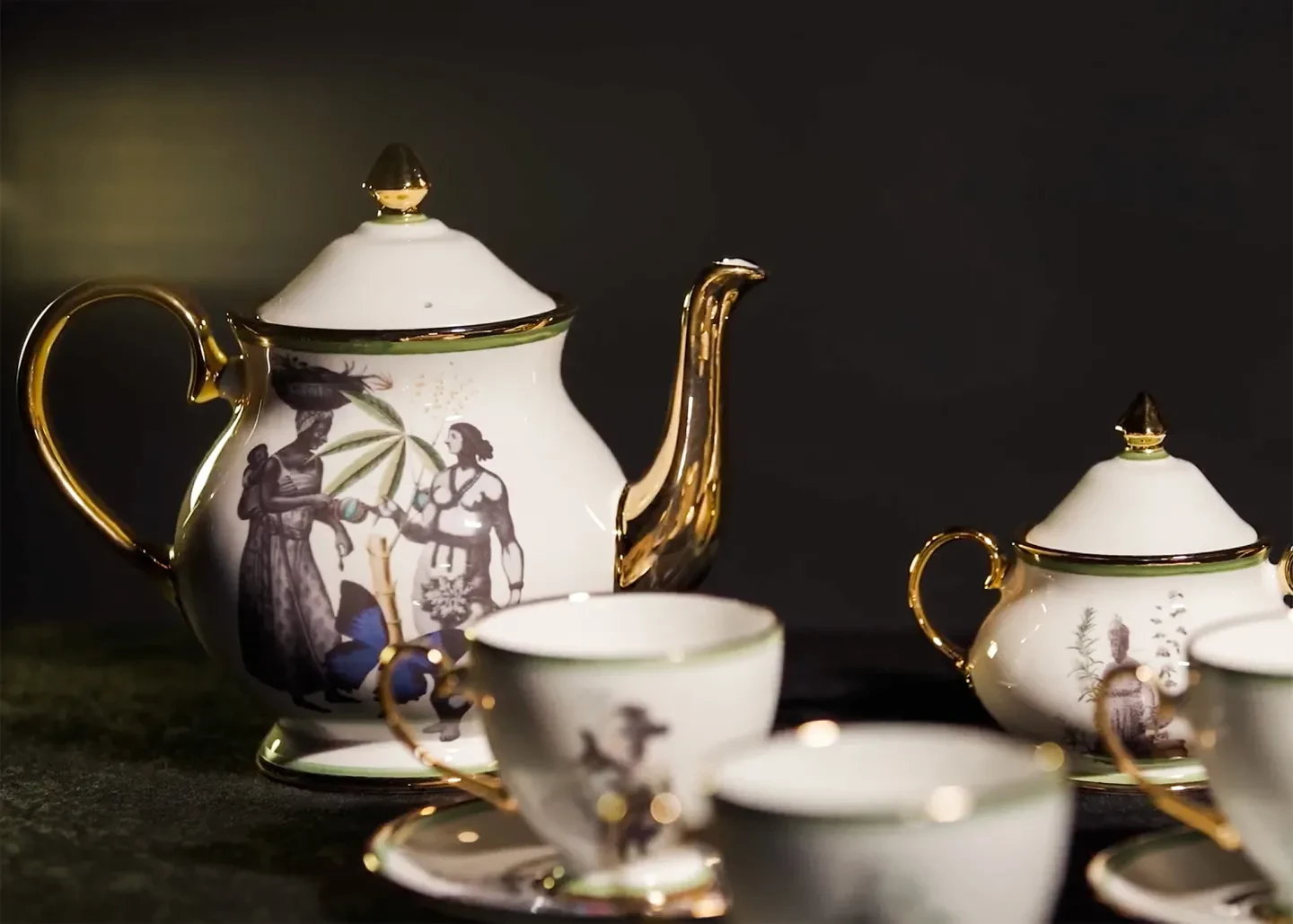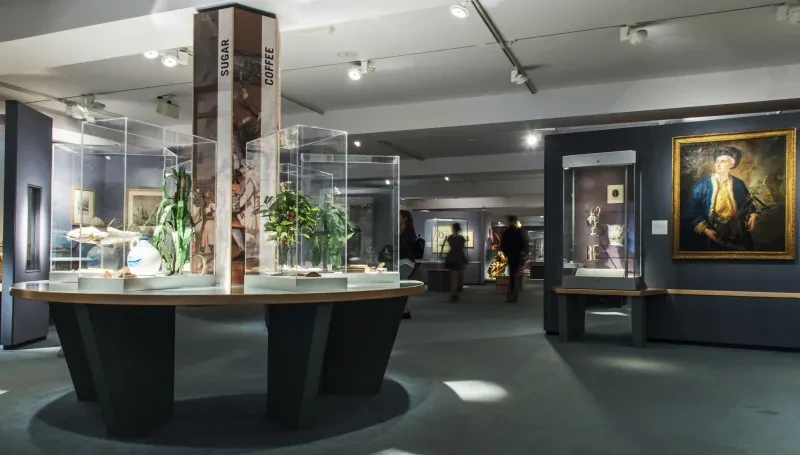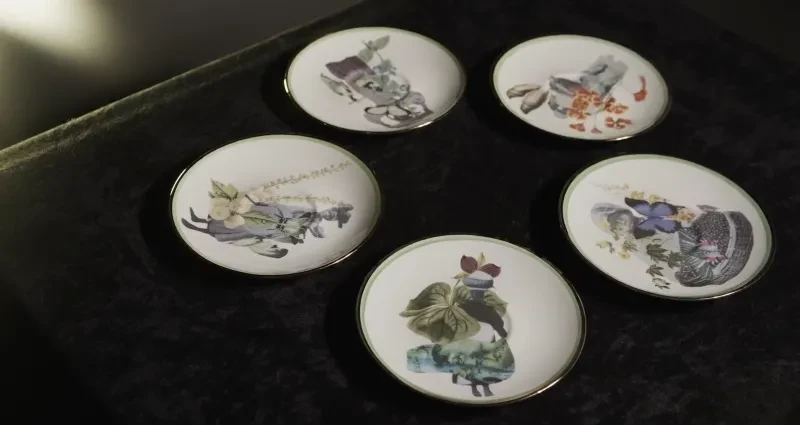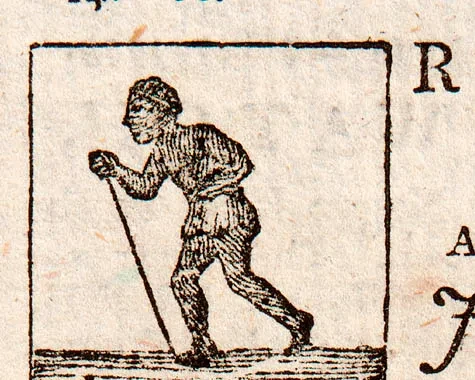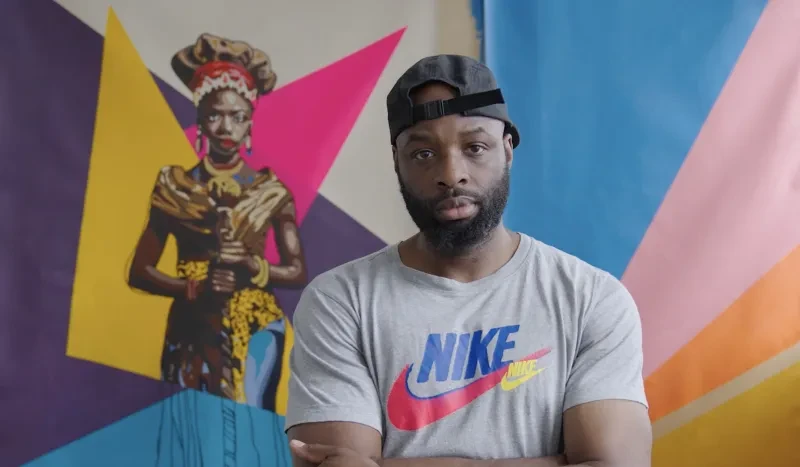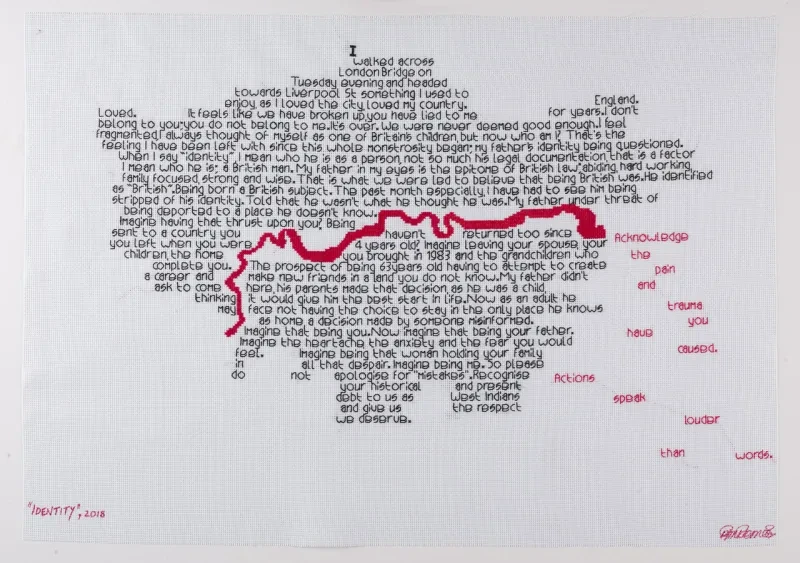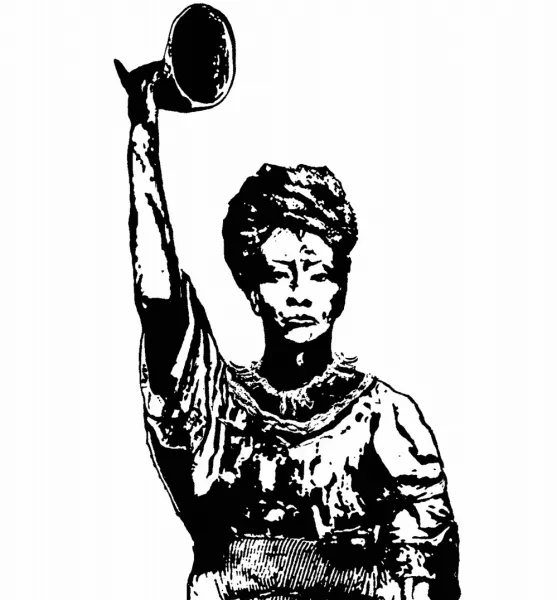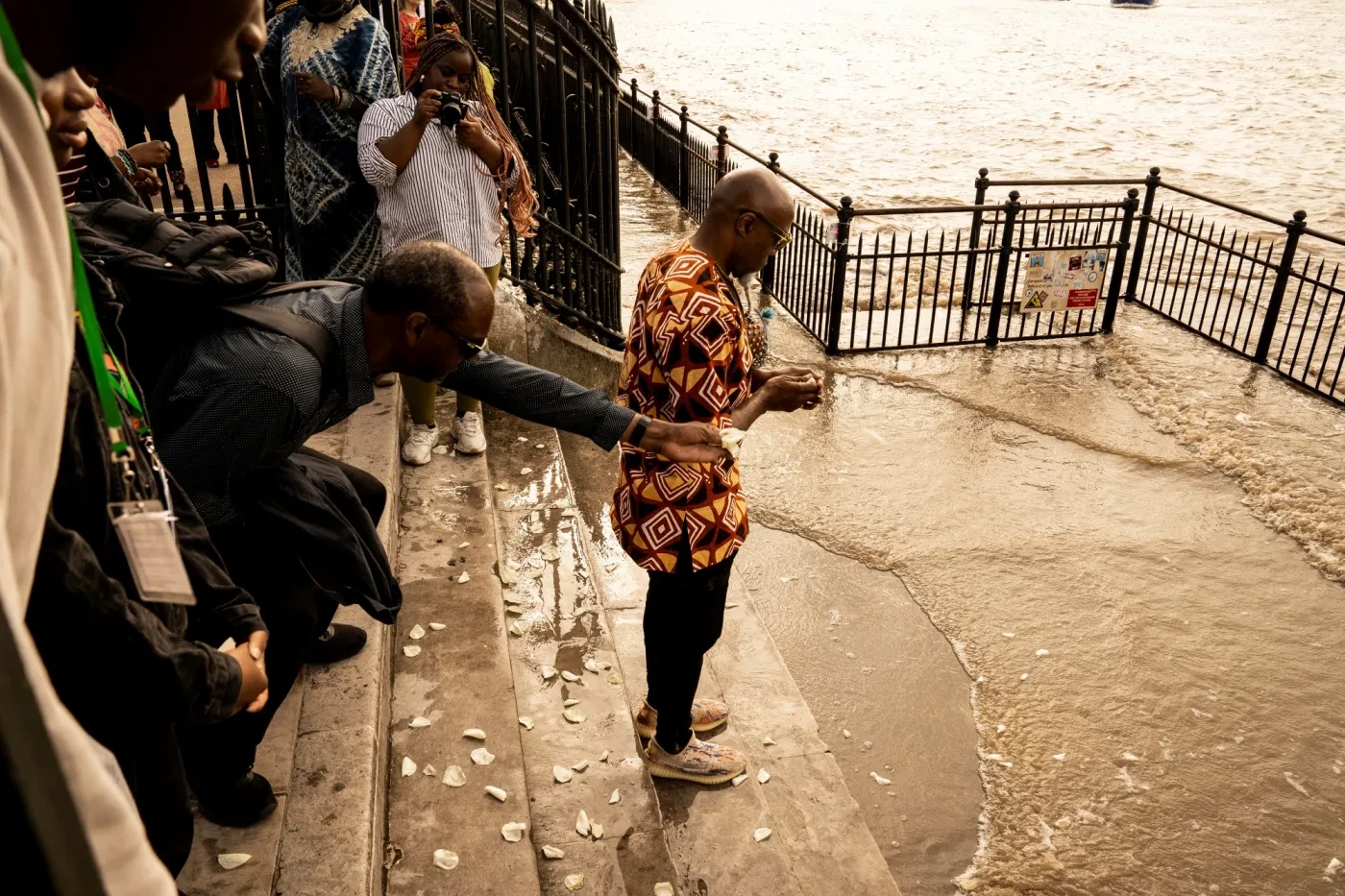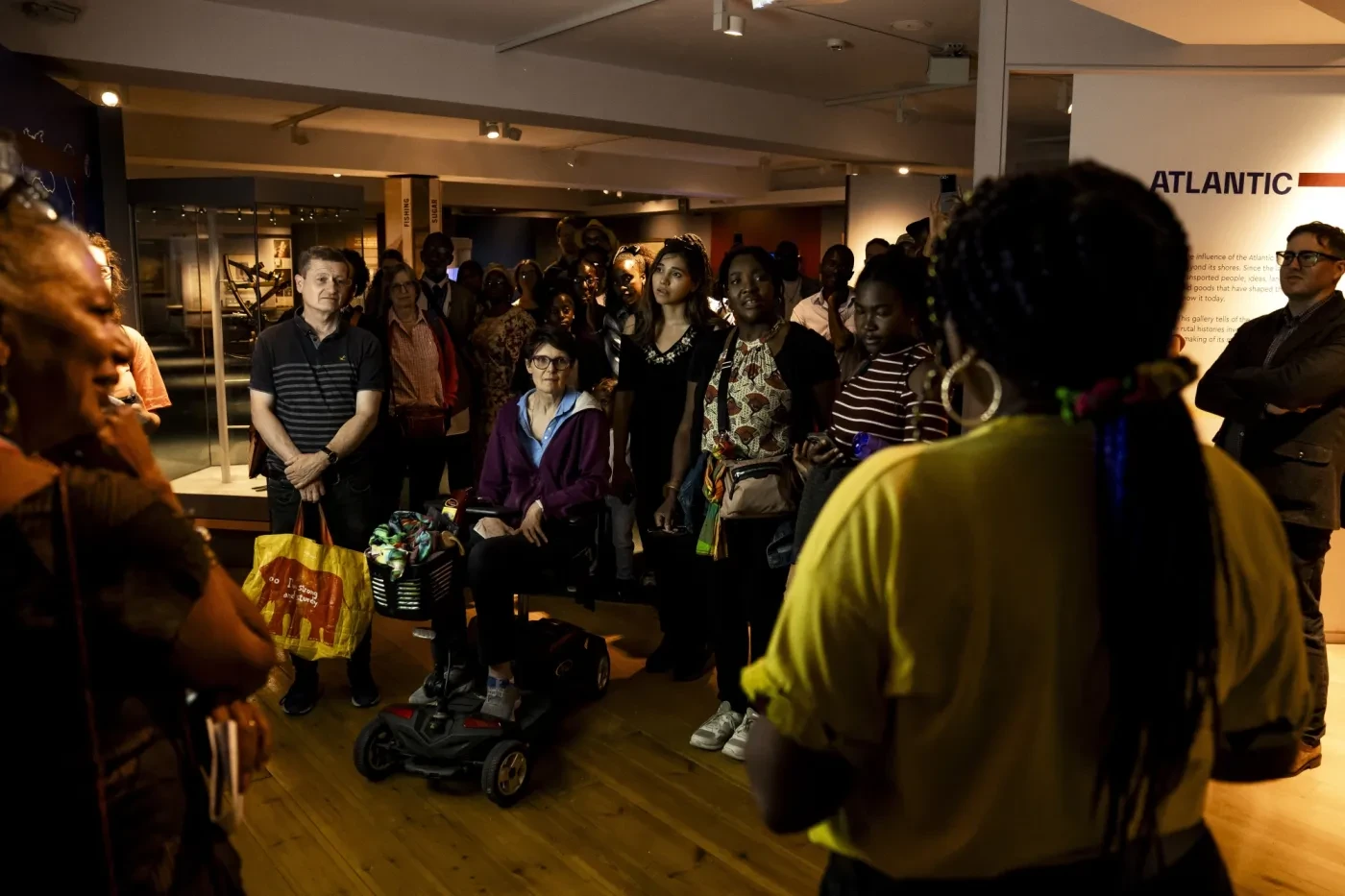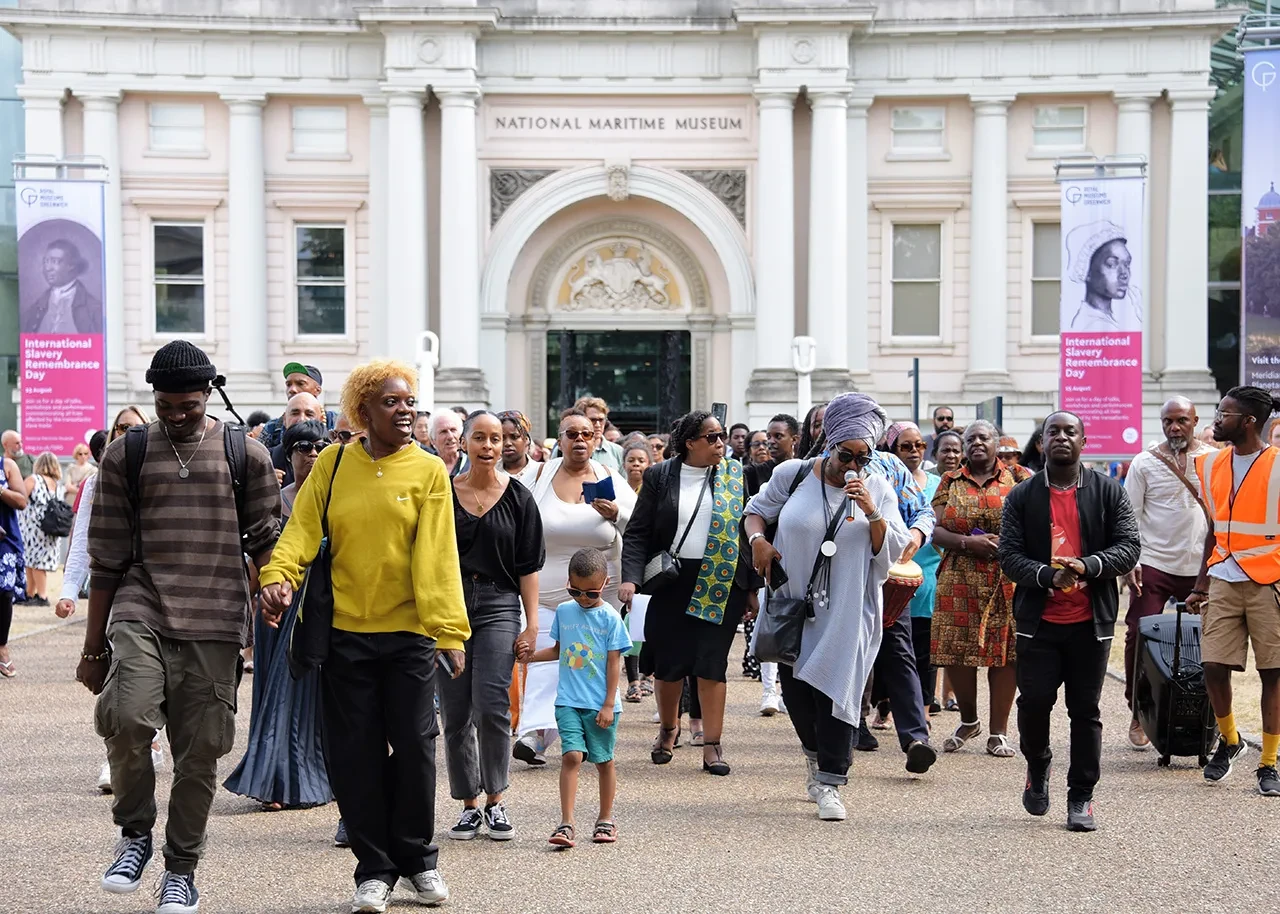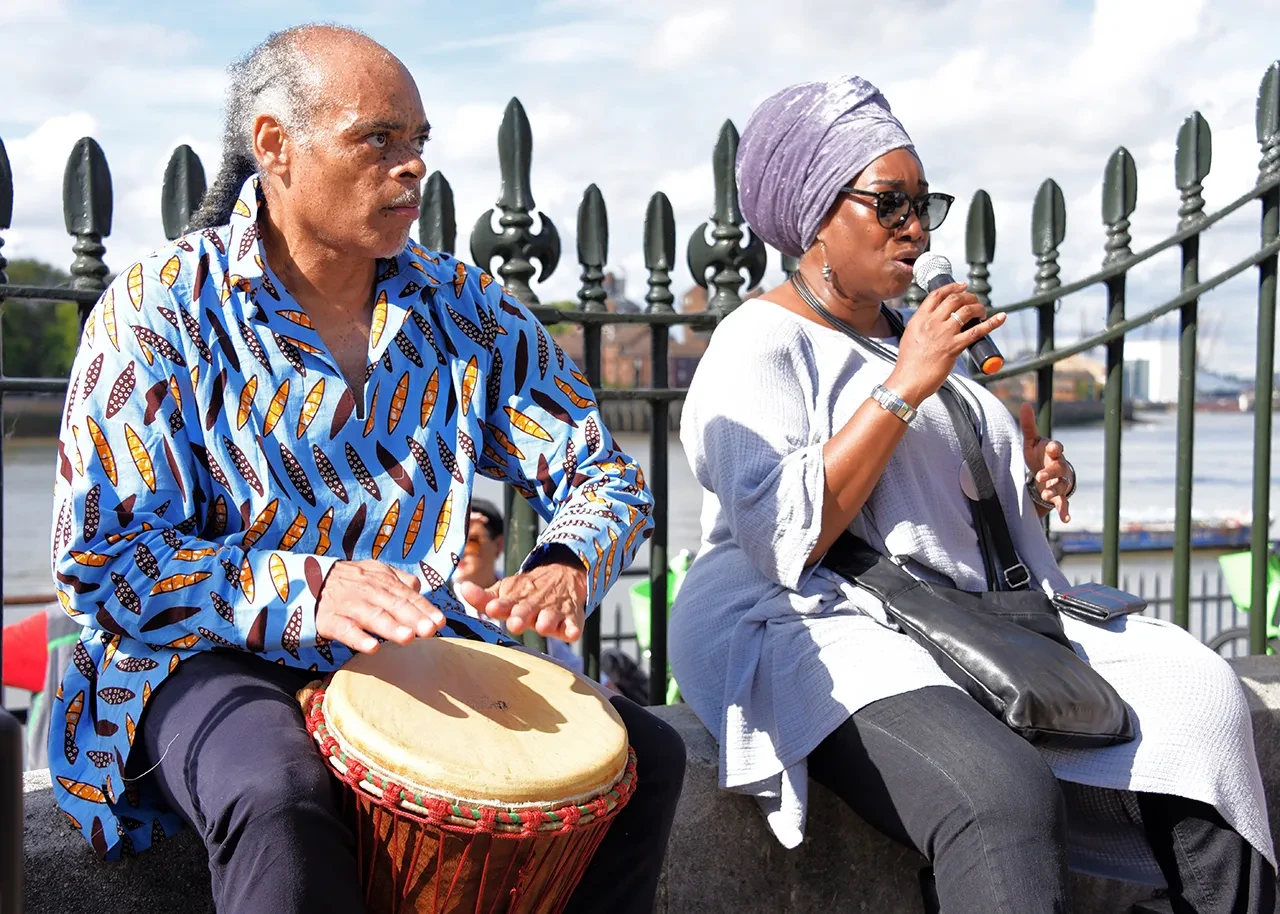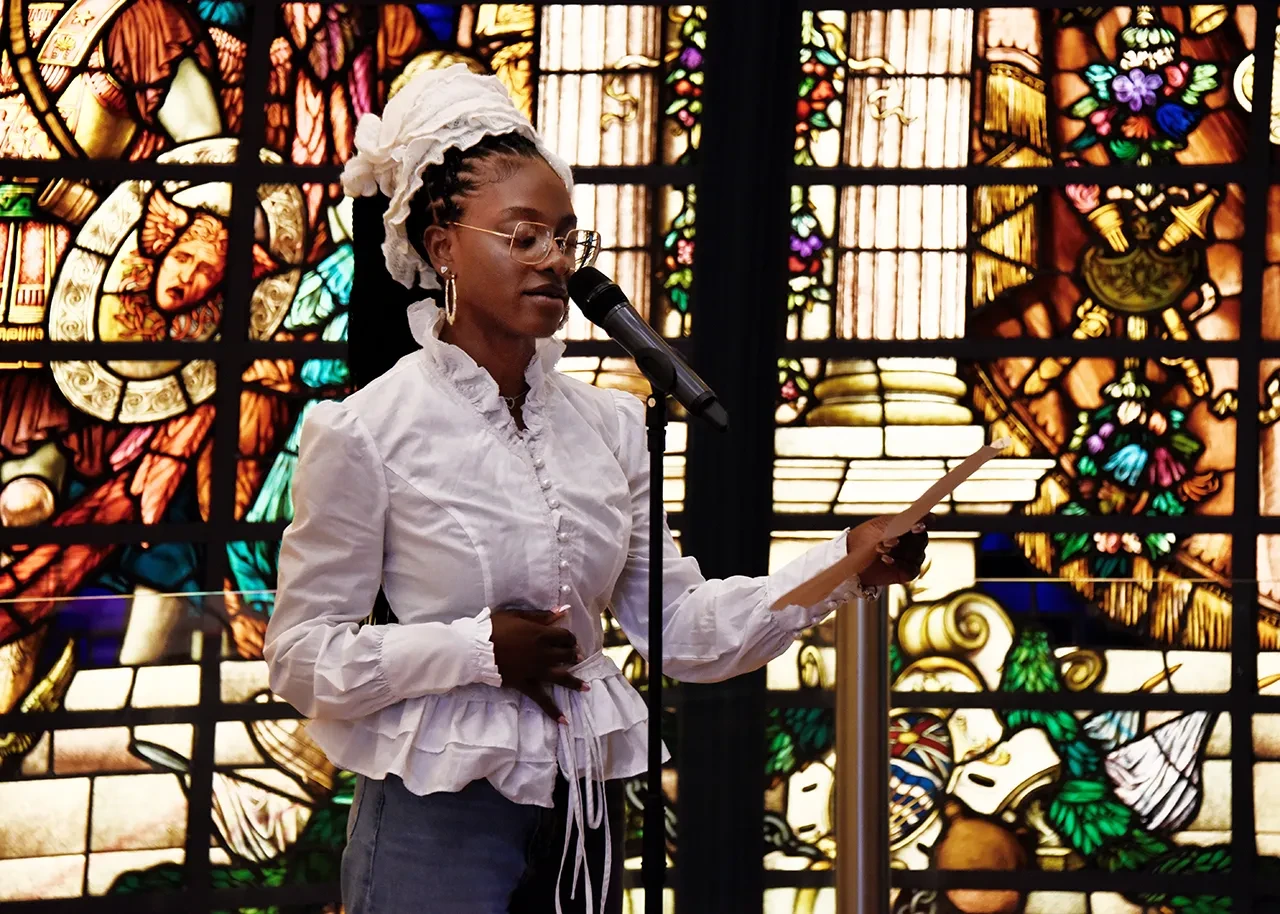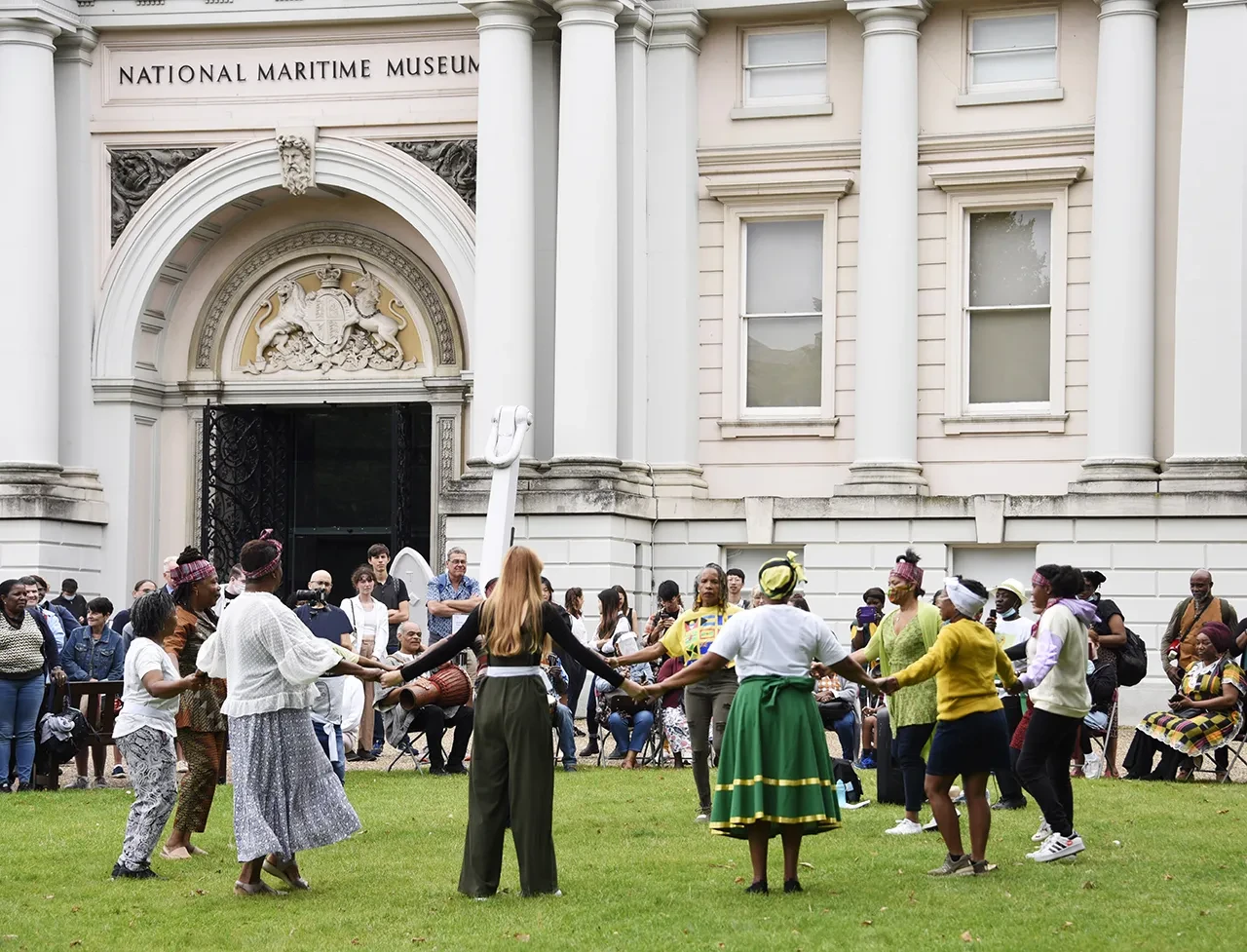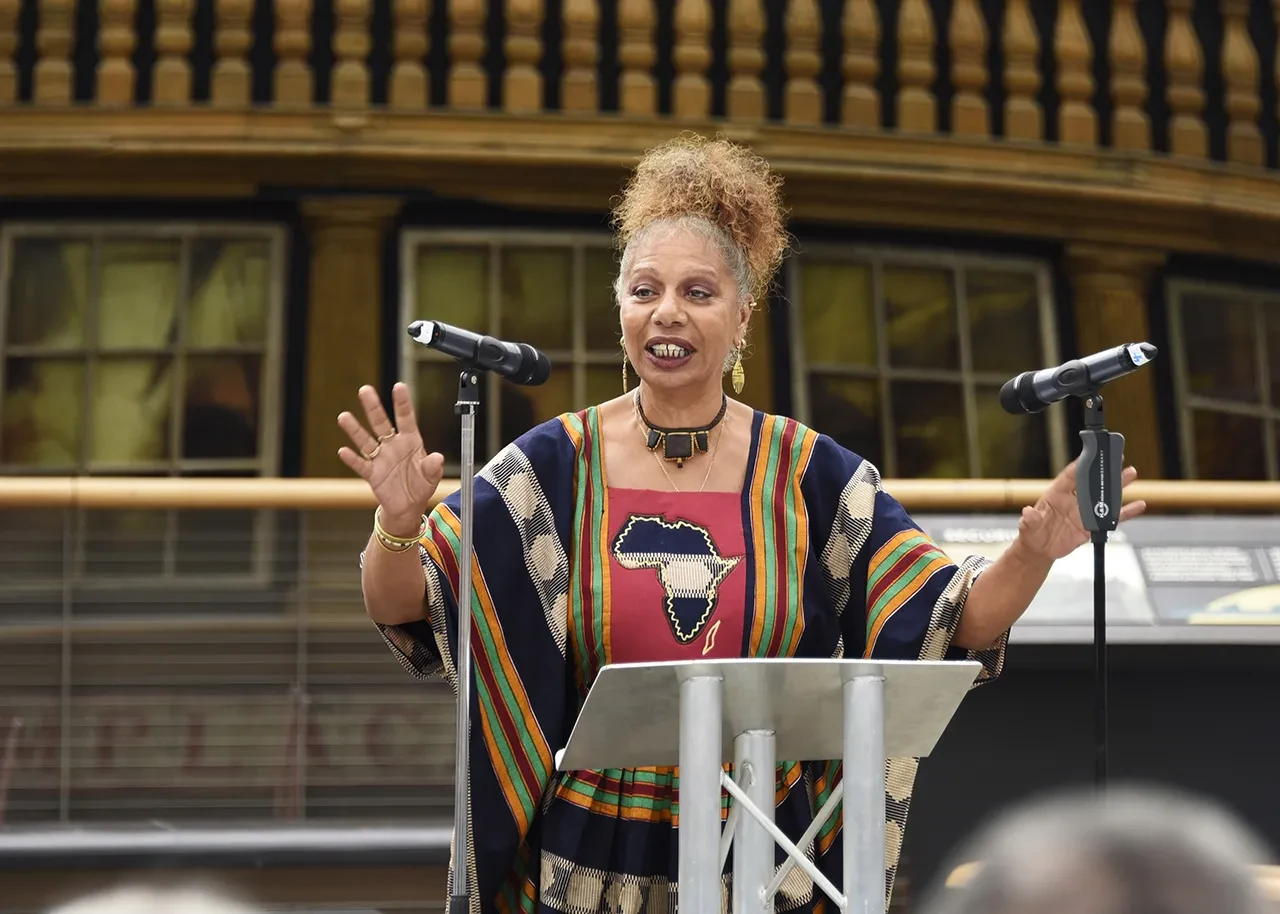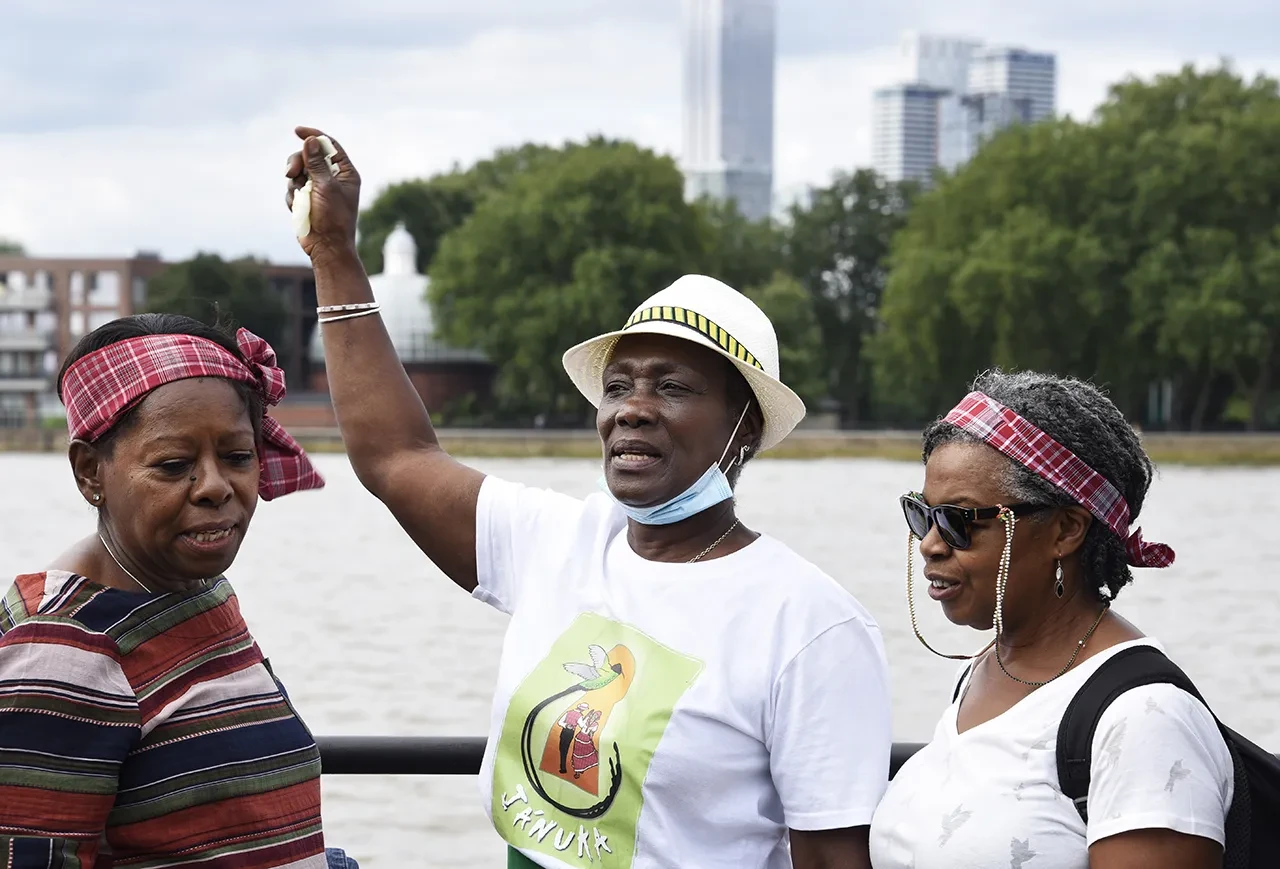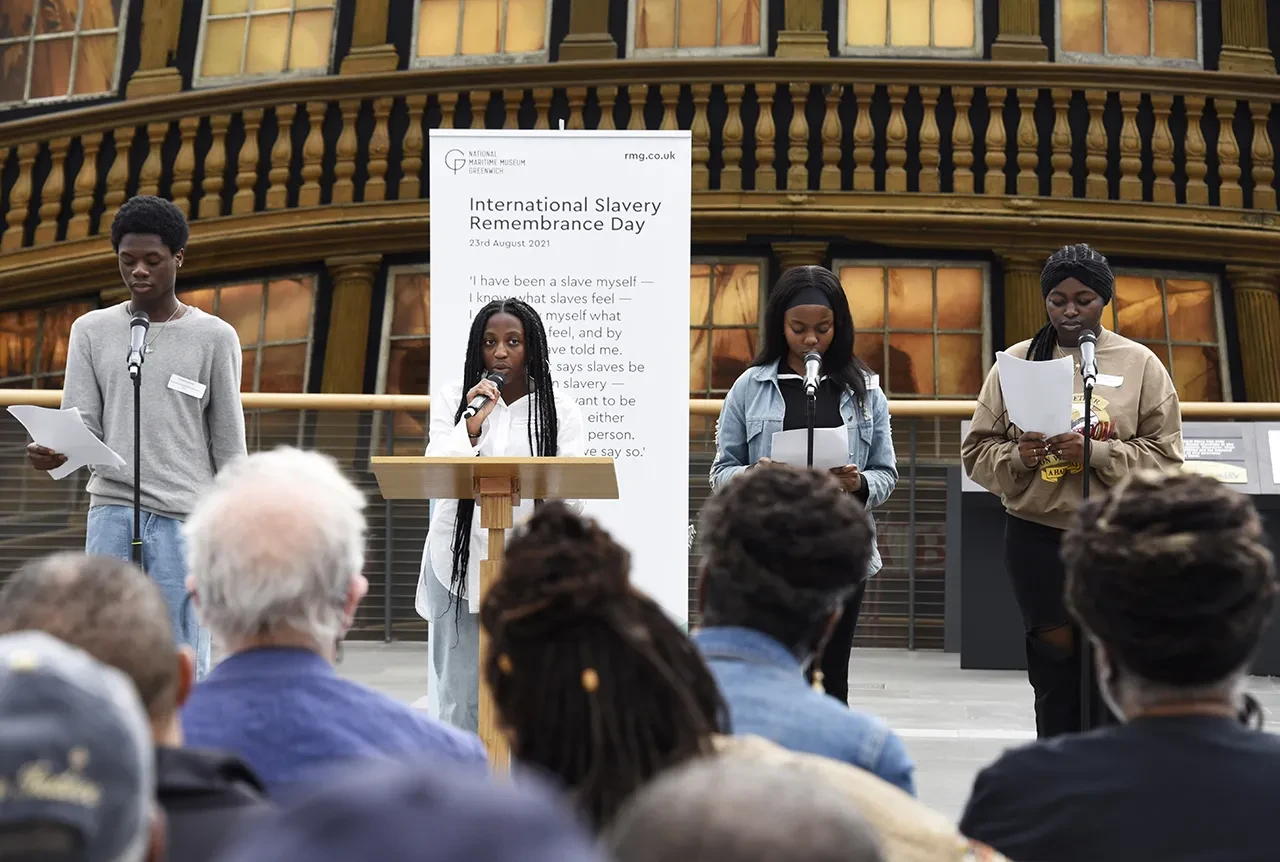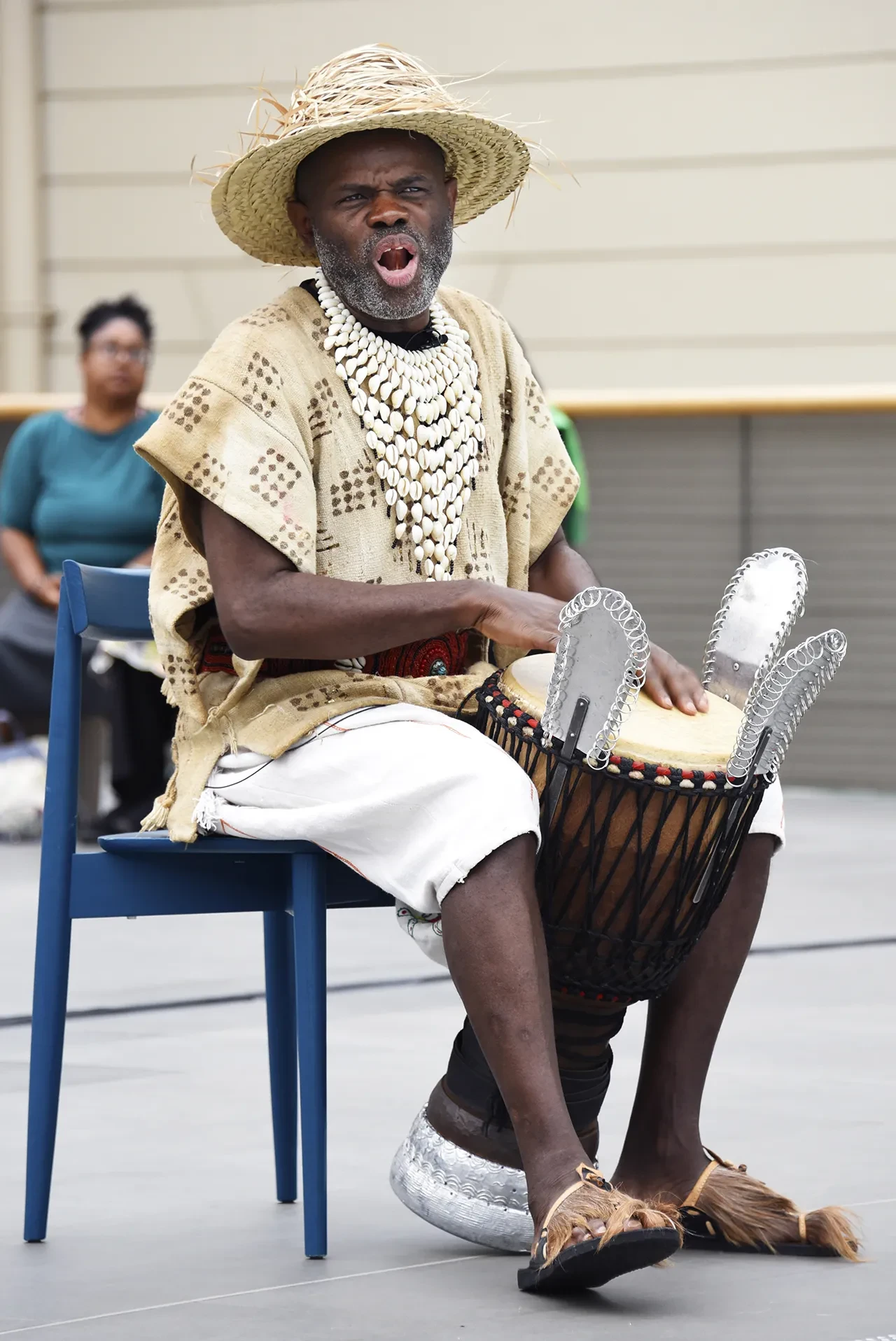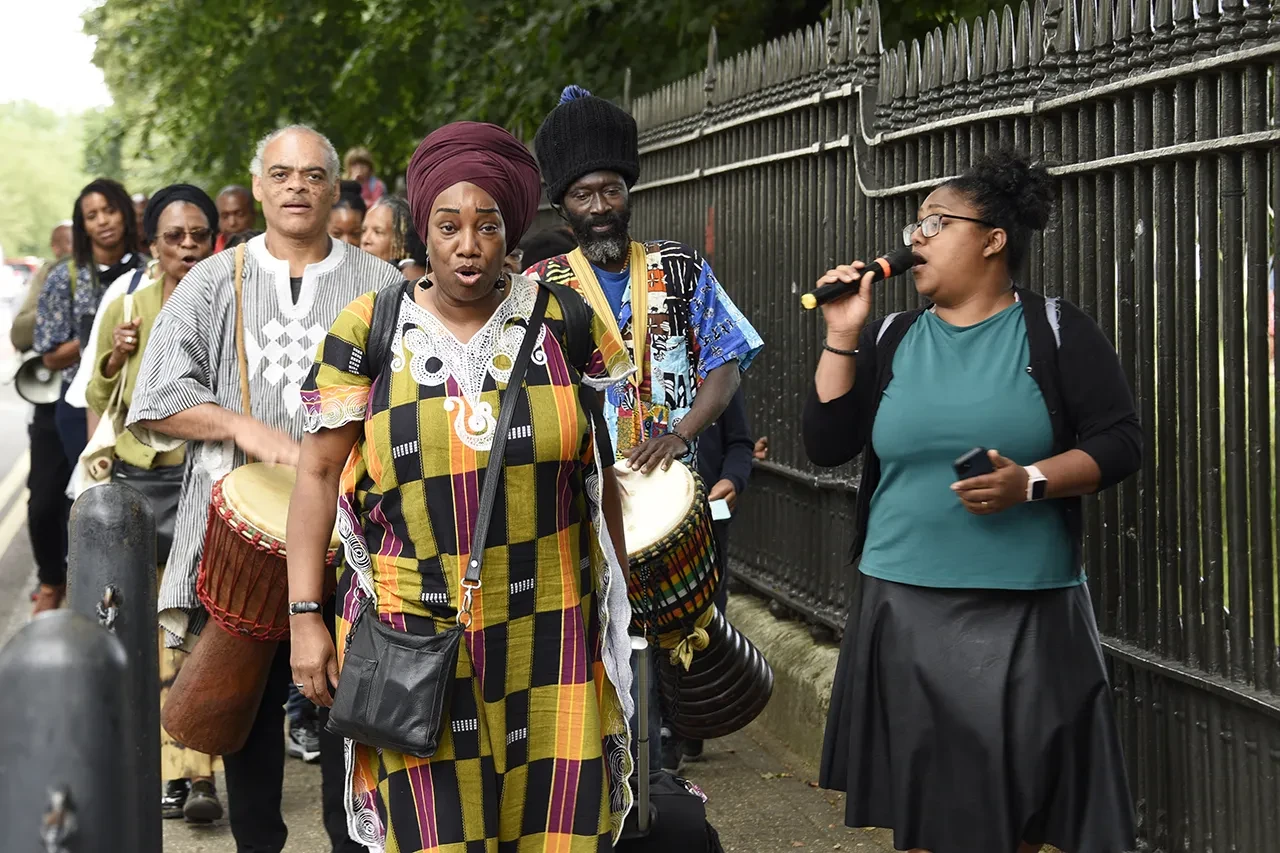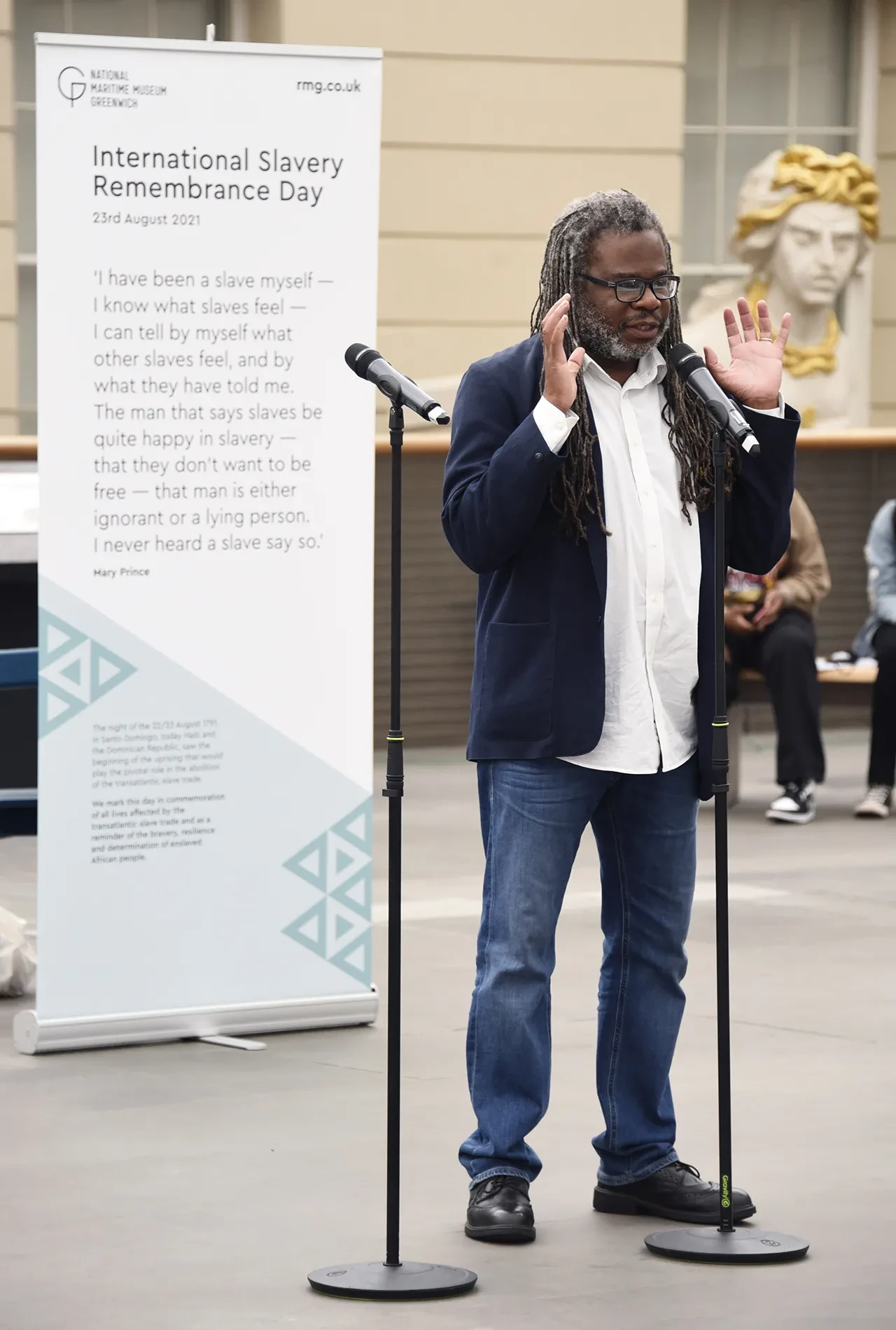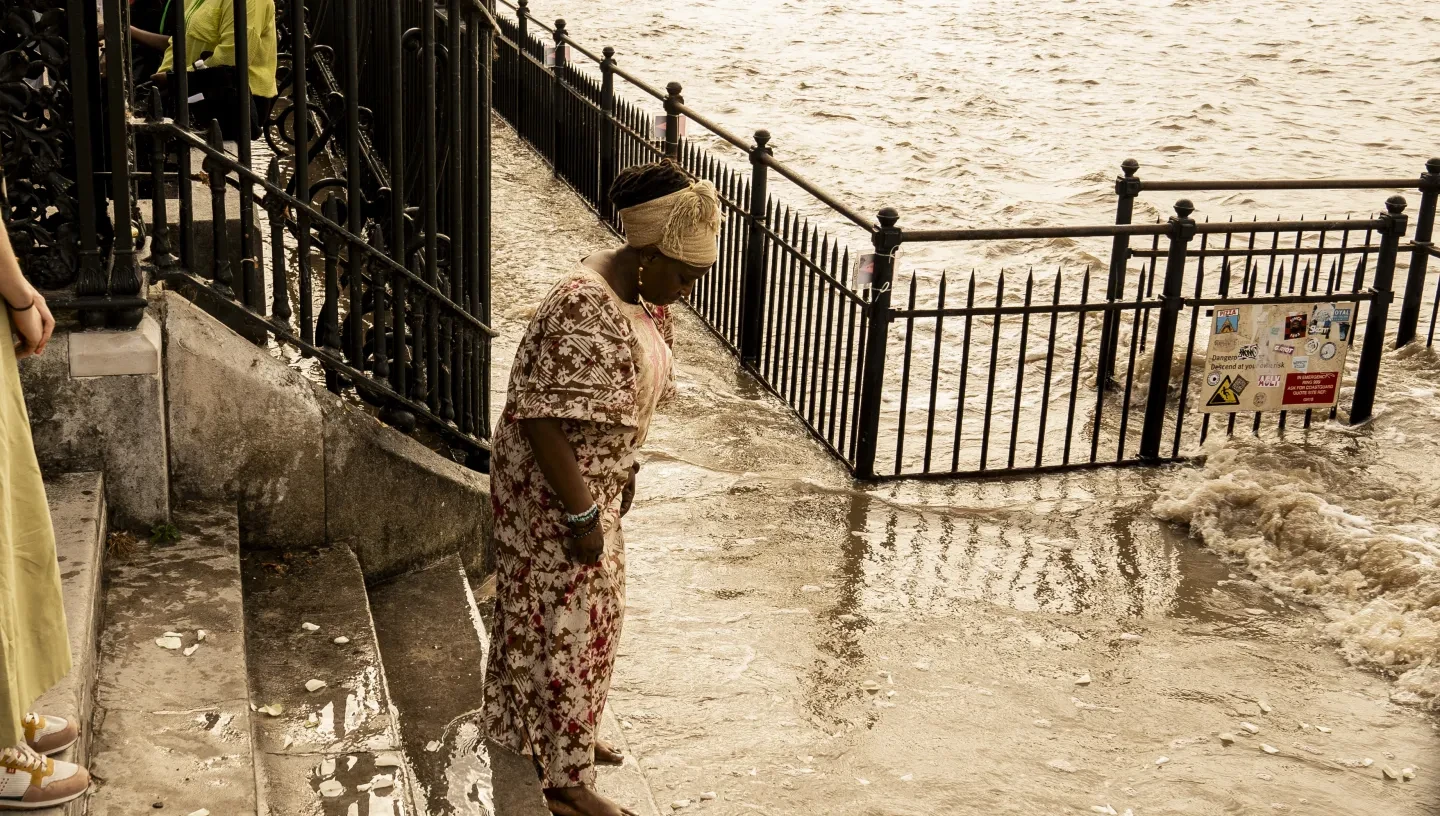
Essential information
| Type | Events and festivals |
|---|---|
| Location | |
| Date and times | Saturday 23 August 2025 | 11am-5pm |
| Prices | Free |
On 23 August 1791, enslaved people on the island of Saint Domingue (modern-day Haiti and the Dominican Republic) rose up against French colonial rule.
The uprising played a crucial role in the abolition of the transatlantic slave trade.
That's why, on 23 August each year, Royal Museums Greenwich commemorates International Slavery Remembrance Day and the long struggle for emancipation throughout the world.
2025 in focus
Curated by Amouraé B. Chin (Amouraé Alliyah), this year's programme focuses on themes of resistance, care and collective memory, while we bear witness to the resilience of the enslaved and their descendants.
Activities will be in conversation with the newly installed artwork, Jacqueline Bishop’s The Keeper of All The Secrets at the Queen’s House.
The day features workshops, screenings, sonic performances and more. It concludes with an emancipation ceremony at the River Thames where guests are invited to join in a collective act of remembrance.
Find out more about the 2025 event, and find more stories, resources and information below.
Skip to:
Never miss a moment
Sign up to our newsletter and receive all the latest news, stories and events from the National Maritime Museum.

Meet our guest curator
Amouraé B. Chin (Amouraé Alliyah) is a multidisciplinary researcher who has co-curated International Day for the Remembrance of the Slave Trade and its Abolition 2025 with Royal Museums Greenwich.
Her methods privilege care, collaborations, site-specificity, and research-as-practice. With a background in history with creative writing, she interprets the threads, ruptures, and remains of spaces that speak to her diasporic heritage, while tending to archives through informal 'mapping' techniques.
Amouraé's archival work and poetry was showcased in The London Archives' year-long Unforgotten Lives exhibition (2023-24); whilst her arts-based research has featured in displays at MAIA (2024), the Institute of Contemporary Arts (2025), and Architecture Fringe (2025).
International Slavery Remembrance Day 2025 has been her first major curatorial project.
Full event schedule
Your at-a-glance guide to the activities taking place. Scroll down further for more information about each activity.
| Time | Activity | Location |
| 11am-11.30am | Opening ceremony and keynote speech | Great Hall, National Maritime Museum |
| 12:00am-3pm | Reflections: Drop-in wellbeing workshop | Reflection Space, Atlantic Worlds gallery, National Maritime Museum |
| 11.30am-3:45pm | Drop-in creative workshop: The market woman's basket | Learning Space, National Maritime Museum |
| 11.30pm-1.30pm | Creative workshop: Quilting as resistance | Rethink Space, National Maritime Museum |
| 11.30am-2.00pm | Workshop: Letters to the Ancestors | Atlantic Worlds gallery, National Maritime Museum |
| 11:30 - 15:45 | Drop-in: Games Without Wires | Figurehead Space |
| 11.45am-12.15pm | Poetry performance: Hidden in the archives | Atlantic Worlds Gallery, National Maritime Museum |
| 11.45am - 12.45pm | Archive session: Gathering Secrets: Black Feminist Memory, Healing, and Resistance | Caird Library, National Maritime Museum |
| 11.50am-12pm | Film screening: A Protest, A Celebration, A Mixed Message | Lecture Theatre, National Maritime Museum |
| 12.05pm-12.25pm | Film screening: Through a Shimmering Prism, We Made a Way | Lecture Theatre, National Maritime Museum |
| 12.15pm - 1pm | Performance workshop: The myth we made while drowning: imagination as resistance | Ocean Map, National Maritime Museum |
| 12.25pm-12.35pm | Film screening: If I could name you myself (I would hold you forever) | Lecture Theatre, National Maritime Museum |
| 12.35pm-12.55pm | Film screening: a river holds a perfect memory | Lecture Theatre, National Maritime Museum |
| 12.55pm-1.05pm | Film screening: S8 Dominica Montage.Ver. 1.2 | Lecture Theatre, National Maritime Museum |
| 1.05pm-1.55pm | In Conversation: Framing the affective afterlives of slavery | Lecture Theatre, National Maritime Museum |
| 2pm-2.45pm | Talk: Black women's freedom, movement and work in the eighteenth-century British world | Great Hall, Queen's House |
| 2pm-4pm | Zine-making workshop: Hair, Resilience and Identity | Rethink Space, National Maritime Museum |
| 2.15pm-3.45pm | Singing workshop with Ethnovox | Group Space, National Maritime Museum |
| 2.15pm-3.20pm | Film screening: salt:dispersed | Lecture Theatre, National Maritime Museum |
| 2.45pm-3.45pm | Panel discussion: Transatlantic legacies: creative agency, Black motherhood, and reproductive justice | Great Hall, Queen's House |
| 3.25pm-3.55pm | Film screening: Le roi n'est pas mon cousin | Lecture Theatre, National Maritime Museum |
| 4pm-4.45pm | Emancipation ceremony | Meet in the Great Hall, Queen's House before processing to the River Thames (10-minute walk) |
Event summaries

Opening ceremony and keynote speech
The day will begin with a performance from Ethno Vox choir and an introduction from keynote speaker, Dr Aleema Gray.
Dr Aleema Gray is an award winning Jamaican-born curator, researcher and public historian based in London.
She was awarded the Yesu Persaud Scholarship for her PhD entitled Bun Babylon: a community-engaged history of Rastafari in Britain.
Aleema’s practice is driven by a concern for more historically contingent ways of understanding the present, especially in relation to notions of belonging, memory and contested heritage in the African and Caribbean diaspora. She was the Lead Curator for Beyond the Bassline: 500 years of Black British Music at the British Library and the founder of HOUSE OF DREAD, an anti-disciplinary heritage studio dedicated to the preservation and activation of African and Caribbean histories.
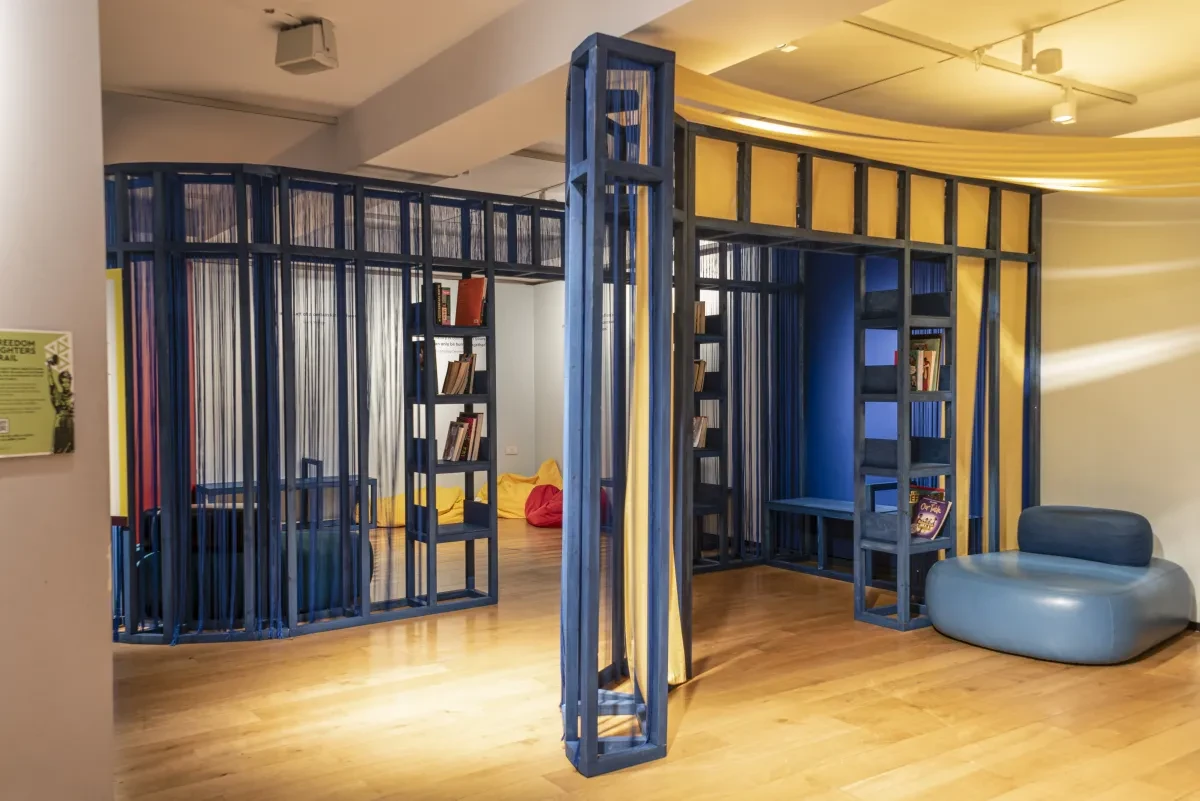
Reflections: Drop-in wellbeing workshop
Reflection Space, Atlantic Worlds Gallery | 12pm-3pm
Head to the Reflection Space in the Atlantic Worlds gallery to create personal collages in response to The Keeper of All The Secrets by Jacqueline Bishop, and explore wider themes of care, resistance and collective memory.
This calming experience will focus on self-expression, emotions and creativity and is led by Stephanie Okoye.

Performance workshops
Hidden in the archives, a poetry performance by Jeremiah Brown
Atlantic Worlds Gallery | 11.45am - 12.15pm
Poet Jeremiah Brown will perform a selection of poems inspired by materials within the Caird Archives. Having spent time looking at materials ranging from plantation inventories to correspondences from Marcus Garvey, Jeremiah will provide a performance of sharp, heartfelt and insightful poetry.
The myth we made while drowning: imagination as resistance with Blu Smith
Ocean Map | 12.15pm - 1pm
This workshop invites participants to descend into the mythic underwater world of Drexciya – an imagined Black Atlantis born from resistance. Through film, storytelling and collective dreaming, we explore imagination as a radical act of survival and a means of myth-making.
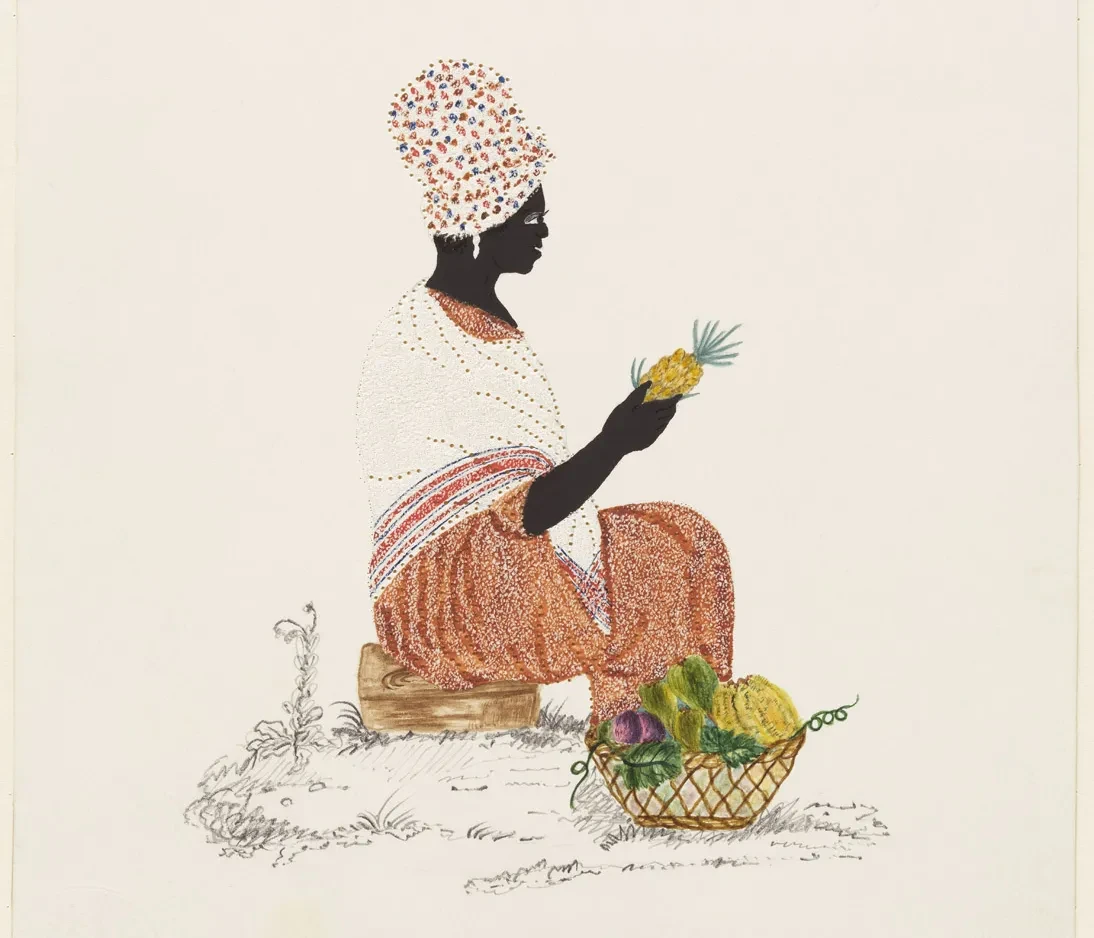
Creative workshops
The market woman's basket
Learning Space | 11.30pm - 3.45pm
Led by artist Love Hannington, this family-friendly series of drop-in workshops will invite participants to weave their own market baskets using wool, paper bowls, and paper plates.
Quilting as resistance
Rethink Space | 11.30am - 1.30pm
Engage with the rich cultural history of quilting as a tool for resistance, self-expression and liberation with Jahnavi Innis. Participants will produce individual quilt blocks which document their personal histories, and advocate for social change.
Zine-making workshop: Hair and resilience
Rethink Space | 2pm-4pm
Explore themes of hair, resilience and identity with Korantema Anyimadu in this collaborative workshop. This session is suitable for ages 12 and above, with 20 spaces available.
Letters to the ancestors
Group Space | 11.30am - 2pm
This creative session will be taken by Deptford People's Heritage Museum – a Black-led museum located near Deptford Docks – and organisation Red Ribbon.
They say: 'In this workshop we take back the practice of letter writing used by the colonisers to share their tales of ‘new’ lands. Using quill pens, resistance quotes from enslaved people and freedom songs learned from our own families and communities we will travel in time tracing ‘common winds’ through the past, present and future.'
Games without wires
Figurehead Space | 11.30am - 3.30pm
Join the Caribbean Social Forum for a day of traditional board games for all ages.
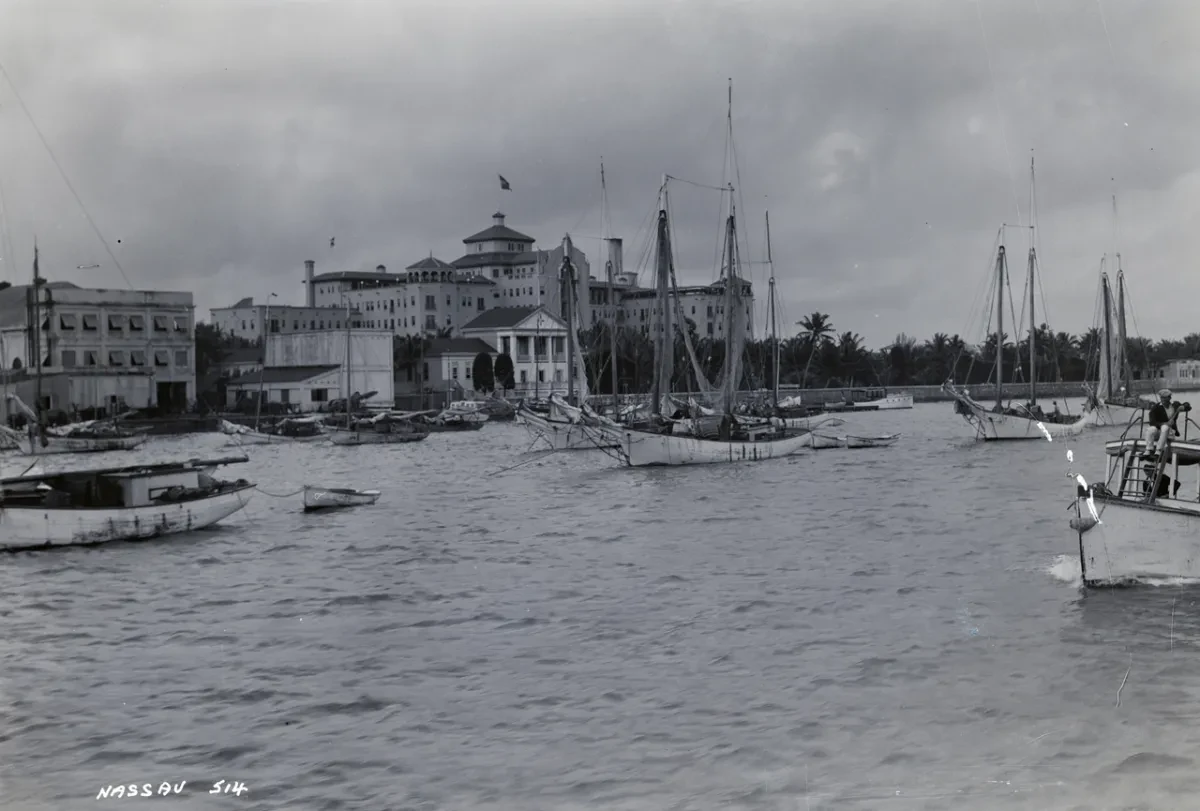
Film screenings
Film screenings are hosted by Ishy Pryce-Parchment and take place in the Lecture Theatre.
A Protest, A Celebration, A Mixed Message by Rhea Storr
This film combines contemporary and historical footage of the Leeds West Indian Carnival to explore Storr's response to the festivities. The film raises questions around forms of authority, participants and observers, and the visibility of Black bodies, particularly in rural spaces.
Through a Shimmering Prism, We Made a Way by Rhea Storr
Focusing on three sisters, this film looks at Black diaspora. Taking as its starting point empty carnival and parade routes in London, United Kingdom and Nassau, Bahamas, the film reflects on progress, the architectural histories of colonialism and the female body in public spaces.
If I could name you myself (I would hold you forever) by Hope Pearl Strickland
This film examines the connotations of cotton, from associations with enforced labour and exploitation to herbal resistance and rebellion.
a river holds a perfect memory by Hope Pearl Strickland
Meandering across waterways in Jamaica, Falmouth, Northern England and Rochdale, this film charts the links between water, memory, labour – and the impact of the industrial revolution.
S8 Dominica Montage.Ver. 1.2 by Nathaniel Télémaque
Scored by a series of soundscapes recorded with Dominica's natural poetic landscapes, this short montage film highlights the country's unique geographies.
Framing the affective afterlives of slavery – in conversation with Nathaniel Télémaque
Nathaniel Télémaque talks to guest curator Amouraé B. Chin (Amouraé Alliyah) about his formative trip to Dominica. This discussion will focus on how the experience shaped his creative process to the questions it raised around home, heritage and belonging.
salt:dispersed by Selina Thompson
In February 2016, two artists got on a cargo ship, and retraced one of the routes of the Transatlantic Slave Triangle – from the UK to Ghana to Jamaica, and back.
Their memories, their questions and their grief took them along the bottom of the Atlantic and through the figurative realm of an imaginary past. It was a long journey backwards in order to go forwards. This show is what they brought back.
Le Roi n'est pas mon Cousin by Annabelle Aventurin
Bringing together poignant interview clips, excerpts of text and symbolic imagery, The King is Not My Cousin is a familial documentary essay centred around resilience, history and sacrifice.
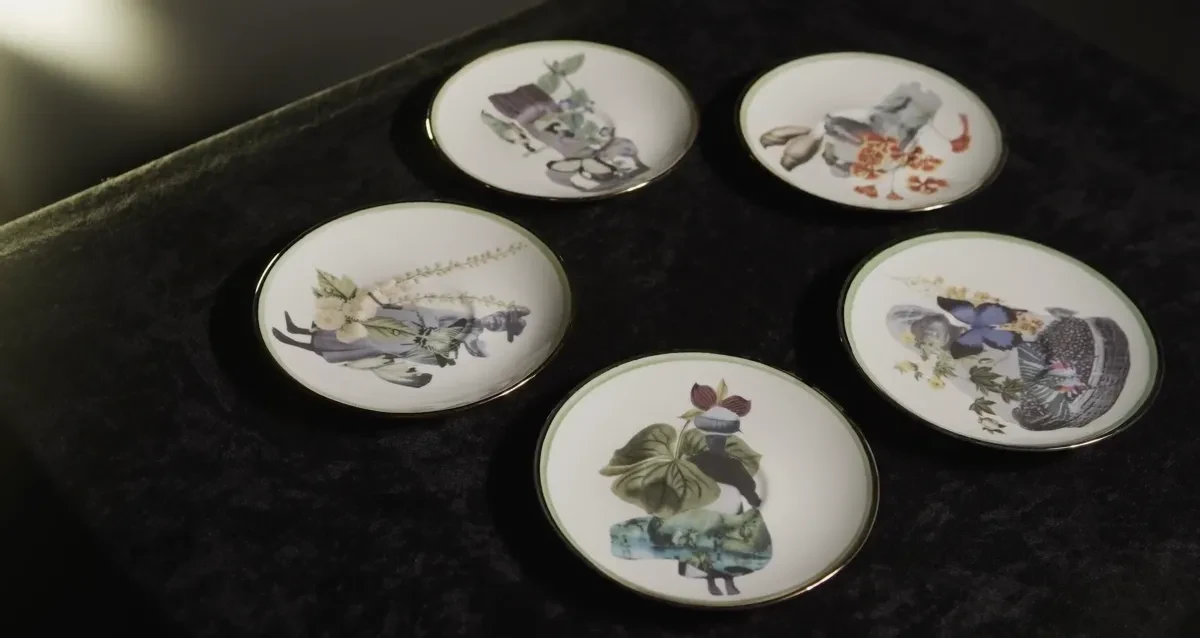
Talks
Gathering secrets: Black feminist memory, healing and resistance in the archive with Whose Heritage Curatorial Fellow Dr Nydia A Swaby
Inspired by Jacqueline Bishop’s The Keeper of All the Secrets, this talk and workshop invites participants to explore Royal Museums Greenwich's collection by centring the lives, labour and healing knowledge of Caribbean and West African women.
Working with photographs, rare books and objects – from market scenes and botanical prints to 18th-century herbals and expedition narratives – we will uncover fragments of knowledge hidden in colonial archives.
Through close looking, collective reading and speculative storytelling, participants will 'gather secrets' that speak to the themes of care, resistance and survival in Bishop's work.
Talk: Black women's freedom, movement and work in the eighteenth-century British world
This talk by historian Dr Montaz Marché will retrace some of the lives of Black women working in London. It will highlight the shifting dimensions of labour, economy, identity and freedom in their working lives.
Panel discussion: Transatlantic legacies: creative agency, Black motherhood and reproductive justice
Bringing together PhD researchers Akosua Paries-Osei, Caroline Bazambanza and chaired by expert Dr Jenny Douglas, this conversation will explore enslaved women's use of ethnobotanical knowledge, as well as contemporary experiences of Black motherhood and care networks.
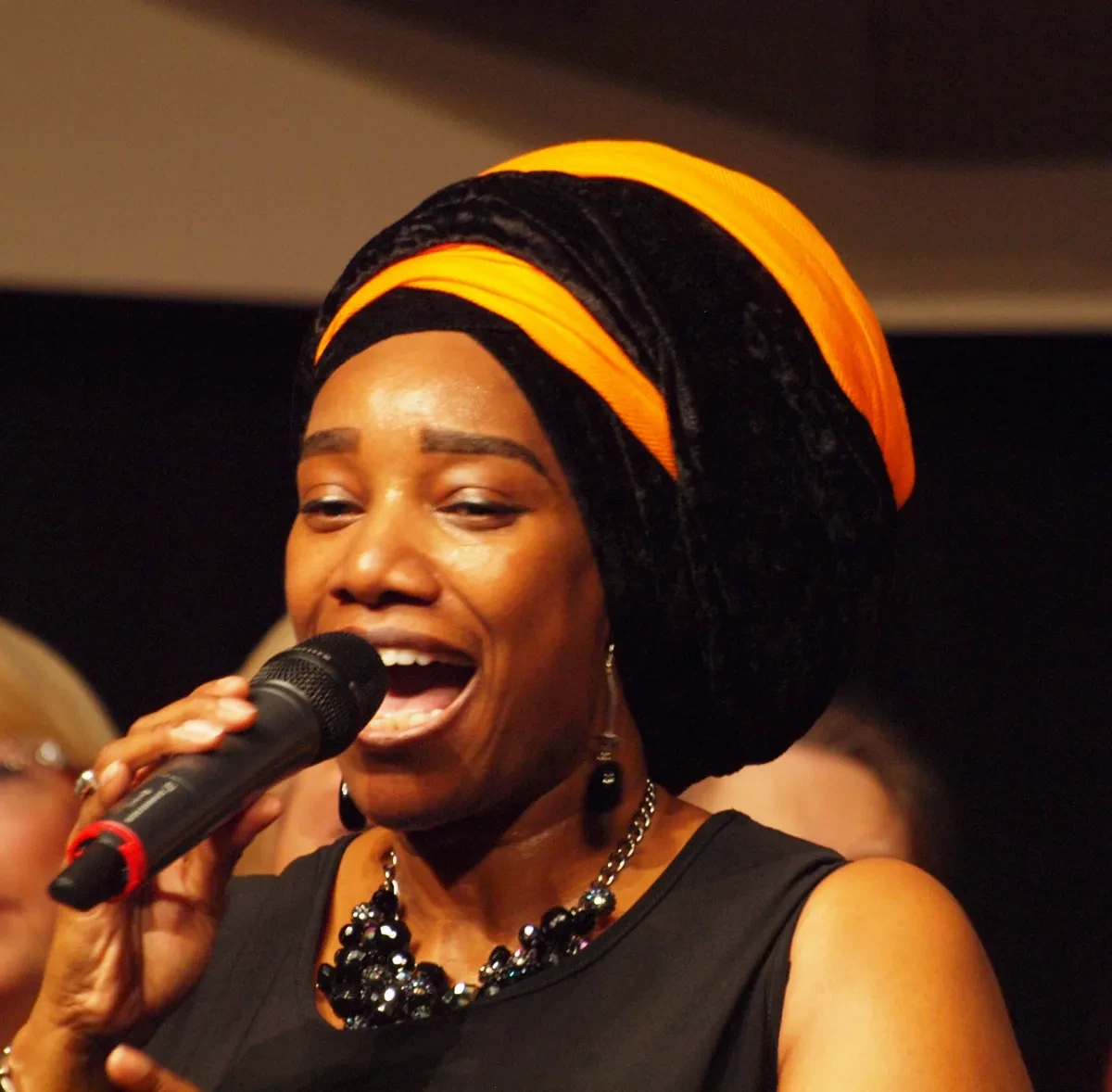
Singing workshop with Ethnovox
Join the Ethnovox choir to learn the song lyrics that will be performed during the Emancipation ceremony.
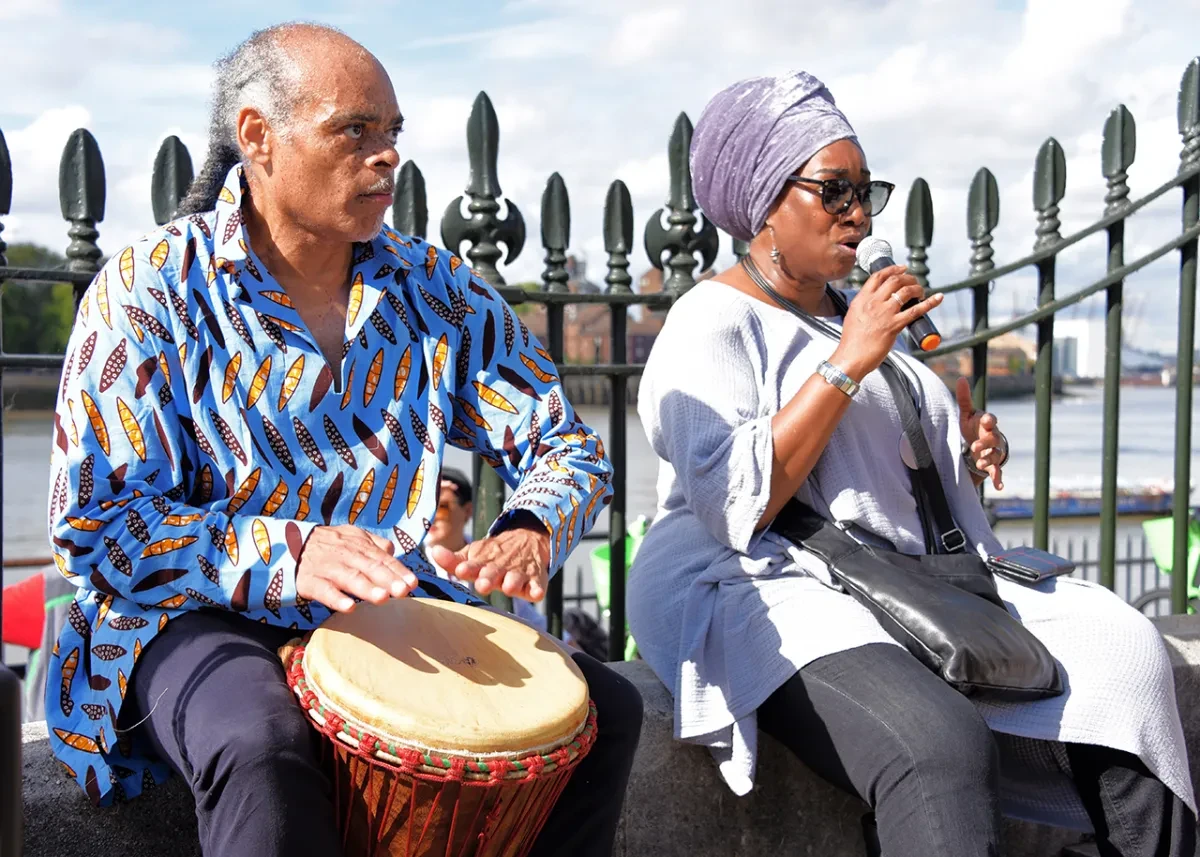
Emancipation ceremony
The day’s commemorations culminate in a procession from the Queen's House to the River Thames. Join us to reflect and scatter petals into the river in a collective act of remembrance, before listening to a closing speech.
Please note that the walk is 10-15 minutes long. Royal Museums Greenwich will close at 5pm so make sure to take your belongings with you.
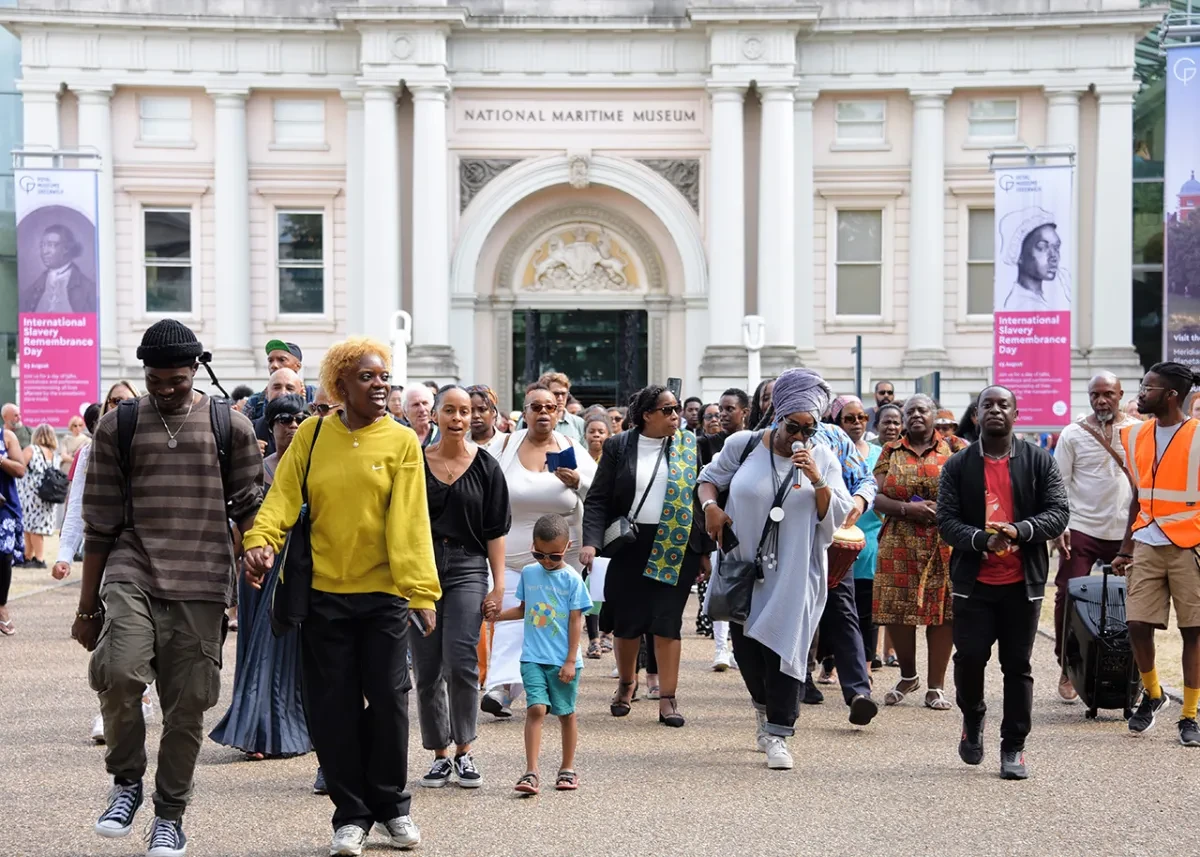
What is International Slavery Remembrance Day?
Between the 1400s and 1800s, 12-15 million men, women and children were forcibly transported from Africa to the Americas.
This day stands as a reminder of the bravery, courage, resilience and determination of enslaved African people who continuously fought for their freedom.
It is a time to remember that people fought and died to establish their own freedom and liberation from the tyranny of enslavement.
The day also raises the contemporary legacies of transatlantic slavery, which are manifested in the continued racism and prejudice against Black and Caribbean communities.
UNESCO selected the 23 August to mark the International Day for the Remembrance of the Slave Trade and its Abolition. 23 August was the day that self-liberated enslaved people on the island of Saint Domingue (today Haiti and the Dominican Republic) rose up against French colonial rule, and played a crucial role in the abolition of the transatlantic slave trade.
In pictures
Look back on previous Slavery Remembrance commemorations hosted at the National Maritime Museum.
